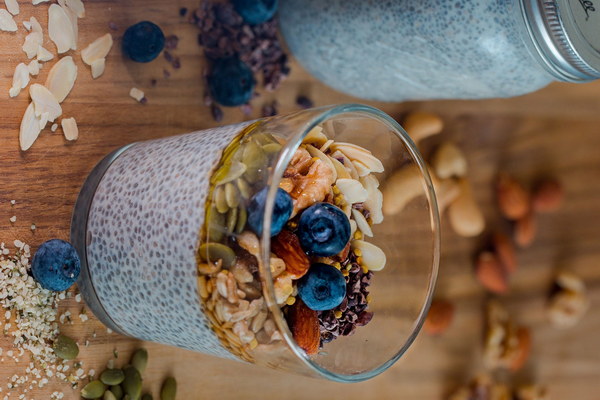Discover the Nutritious Diet of Silkworms for Enhancing Kidney Health What Do They Eat
Silkworms have long been associated with the production of luxurious silk, but did you know that these fascinating creatures can also offer us valuable insights into maintaining kidney health? The diet of silkworms is rich in nutrients that are believed to have beneficial effects on the kidneys. In this article, we will explore the food that silkworms consume and how it can potentially contribute to kidney health.
Silkworms are herbivorous insects that primarily feed on the leaves of the mulberry tree (Morus alba). The mulberry leaves contain a variety of nutrients that are essential for the growth and development of silkworms. Here are some key components of the silkworm diet that may have kidney-boosting properties:
1. High in Protein: Silkworms have a high protein content, which is crucial for their growth and reproduction. Proteins are the building blocks of our body, including our kidneys. Adequate protein intake can support kidney function and help in the repair of damaged tissues.
2. Rich in Fiber: Mulberry leaves are rich in dietary fiber, which is beneficial for maintaining a healthy digestive system. A well-functioning digestive system is essential for the absorption of nutrients and the elimination of waste products from the body, including those that can potentially harm the kidneys.
3. Antioxidants: Mulberry leaves contain antioxidants such as vitamin C, vitamin E, and flavonoids. These compounds help to protect the body from oxidative stress and inflammation, which can damage the kidneys over time.
4. Low in Sodium: Silkworms consume mulberry leaves that are naturally low in sodium. Excessive sodium intake can lead to high blood pressure, a risk factor for kidney disease. By feeding on low-sodium mulberry leaves, silkworms may help to prevent kidney damage associated with high blood pressure.

5. Phosphorus and Potassium: Mulberry leaves contain phosphorus and potassium, two important minerals that play a crucial role in maintaining kidney health. Phosphorus helps to regulate the acid-base balance in the body, while potassium is essential for proper muscle and nerve function, including those in the kidneys.
6. Amino Acids: Mulberry leaves are rich in essential amino acids, which are the building blocks of proteins. These amino acids can help to support kidney function and may even have anti-inflammatory properties.
While the diet of silkworms can offer valuable insights into maintaining kidney health, it is important to note that humans and silkworms have different nutritional needs. However, some of the principles from the silkworm diet can be applied to our own dietary habits to promote kidney health.
Here are some tips for incorporating kidney-boosting foods into your diet:
1. Include plenty of fruits and vegetables in your diet to obtain essential vitamins, minerals, and antioxidants.
2. Choose low-sodium foods and avoid processed and canned foods, which are often high in sodium.
3. Incorporate lean proteins such as chicken, fish, and tofu into your diet to support kidney function.
4. Stay hydrated by drinking plenty of water throughout the day, which can help to flush out waste products from the kidneys.
5. Consult with a healthcare professional or a registered dietitian for personalized dietary recommendations based on your individual health needs.
In conclusion, the diet of silkworms, primarily consisting of mulberry leaves, can offer valuable insights into maintaining kidney health. By incorporating kidney-boosting foods into our own diets and adopting a balanced lifestyle, we can potentially reduce the risk of kidney disease and support overall health and well-being.









